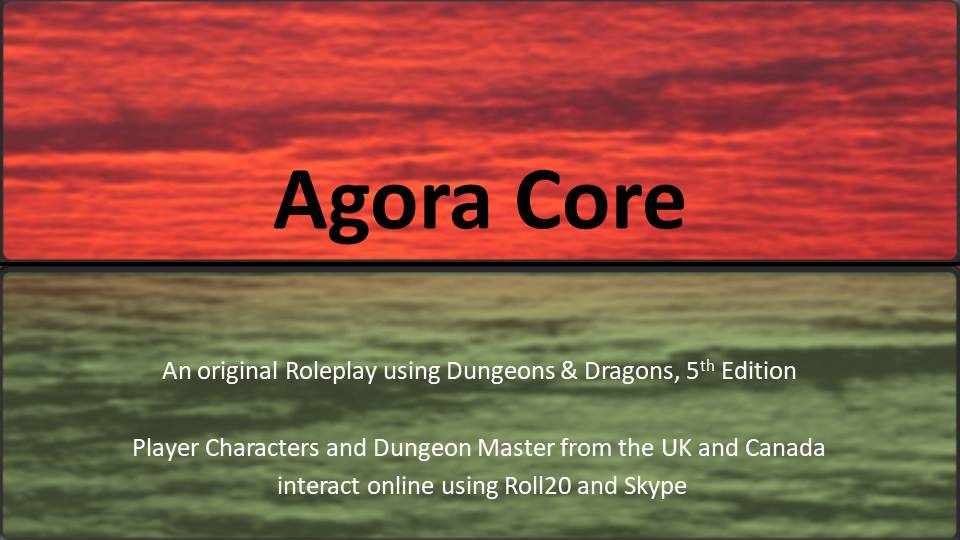Dealing with Death
This refers to Episode 4, Confined: Part 2 of Agora Core.
So,
a certain event happened to one of the party in this episode… you can hear it in all its glorious, gory and somewhat hilarious details. I should say up front that the player involved took it all really well, which was a relief.
I have to say that I’m a fan of the new Death Saving Throws used in the 5th Edition of Dungeons and Dragons. The ‘3 strikes (failed throws of 10 or under on a d20) and you’re out’ approach gives a sense of drama and also provides comrades a chance to revive the fallen player.
But if this doesn’t happen – if the dice gods are not kind and allies are busy elsewhere – what happens when the Player Character (PC) actually dies?
I have played in games where the PCs do die – indeed, in one-shot roleplays high-stakes and player vs player conflict makes it inevitable, but when the game is longer there is a lot of player investment in a character and it’s not a good feeling to lose the character, for the character sheet to be metaphorically and sometimes literally torn up.
On the other hand, what if your character comes back from the dead? What if they are given another life, or the Dungeon Master (DM) tweaks events in the player’s favour? To me that cheapens the drama, like playing a computer game in cheat-mode. The roleplay may not be the same for the players either after such an event if they
feel they are effectively immortal.
So how can a balance be struck between giving the player a fair chance of survival without potentially damaging the authenticity of the roleplay experience?
This is how it was managed when Laura Bailey’s character Vex’ahlia died in Critical Role episode 44. The DM Matt Mercer combines the Revivify spells their cleric used with a group-assisted roll.
It seems fair that in order to avoid death to a PC there has to be a price to pay, either in gold or through effort in order to bring the player back to the land of the living. Such a gift has to be earned for the rules to be bent in the player’s favour. If death cannot be negotiated with, then they players could always try to direct approach and go to the realm of the dead (the underworld sometimes also known as Hades or Hel). A mission could be attempted to bring the person back such as with Orpheus and Eurydice.
Finally, in considering roleplay authenticity and loss, there is a blog entry by Will Wheaton where he describes the events of Aeofel’s death as part of the Acquisitions Incorporated roleplay series. On this event, Will says “I’m happy that I stayed true to Aeofel’s beliefs and played him the way I wrote him.”

